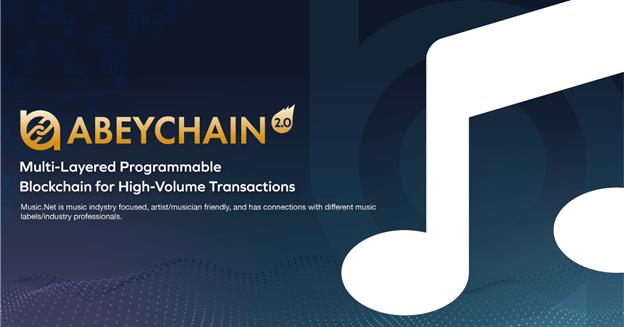Reason to trust

How Our News is Made
Strict editorial policy that focuses on accuracy, relevance, and impartiality
Ad discliamer
Morbi pretium leo et nisl aliquam mollis. Quisque arcu lorem, ultricies quis pellentesque nec, ullamcorper eu odio.
Blockchain technology has come a long way since Bitcoin was introduced over a decade ago. While the number of use cases for blockchain technology continues to grow, there is one inherent problem that comes back to haunt the developer community – scalability. Many attempts to solve the scalability issue have ended up compromising speed or the level of decentralization. In fact, this endless cycle now has a name, Blockchain Trilemma. But not for long as ABEYCHAIN 2.0 may have just solved it.
PoW, DPoS and Fruitchain – a perfect recipe
Started earlier this year, ABEYCHAIN 2.0 (ABEY) is a relatively new public blockchain project. It implements a unique combination of PoW and DPoS hybrid consensus mechanisms to achieve a perfect balance of scalability, speed, decentralization as well as cross-chain interoperability. With these features, ABEYCHAIN 2.0 has put an end to the long-standing Blockchain Trilemma to become the developer’s favorite.
ABEYCHAIN 2.0 avoids the trade-off between decentralization and efficiency in pursuit of scalability by using DPoS Committee as the fast chain that processes all transactions and records the committee’s oversight on a PoW node. By doing so, it brings the best of two consensus mechanisms to a single protocol. In addition, the project also upgrades the PoW algorithm by integrating fruitchain technology to further improve the conventional Nakamoto’s protocol in terms of transaction cost, speed and decentralization by eliminating the need for mining pools. Meanwhile, the use of two widely used consensus mechanisms in one protocol contributes towards cross-chain compatibility.
Pushing the Boundaries of DeFi
Decentralized Finance (DeFi) is currently one of the hottest segments in the blockchain industry. As the developer community continues to find the ideal solution for all DeFi needs, ABEYCHAIN 2.0 presents itself as a perfect fit. The cross-chain interoperability feature enables it to act as a bridge between multiple blockchains, a need of the hour as a variety of projects on different blockchains, following different standards that continue to crop up every other day. If that’s not enough, the issue of high gas costs on the Ethereum network has got many scrambling for alternatives.
The ABEY network is DeFi- ready, supporting all the essential elements including XSwap decentralized exchange, liquidity mining, derivatives trading, collateral loans, insurance, gaming, lottery and its own ACT (aCash token) – a stable coin pegged against USD. All crypto assets on ABEY network are managed using the ABEY 2.0 wallet and transactions channeled through the aPay Payment Services.
Extending Beyond DeFi
In addition to DeFi applications, the ABEYCHAIN ecosystem supports the creation and distribution of NFTs. In fact, the project itself has partnered with artists to create its own limited edition NFTs and a marketplace where it can be bought and sold alongside other similar assets.
ABEYCHAIN 2.0 also provides intelligent data storage network for global customers where the storage is distributed across multiple server locations in an encrypted format. As a result, the storage solution offered by ABEY Network will be open, transparent, censorship-resistant and cost-effective with no central points of failure.
ABEYCHAIN 2.0 has come further than most of the other blockchain protocols, with its capabilities and ease of development, it could help further the adoption of blockchain technology at a much more rapid pace than expected.
Learn more about ABEYCHAIN 2.0 at – https://www.abeychain.com/



























